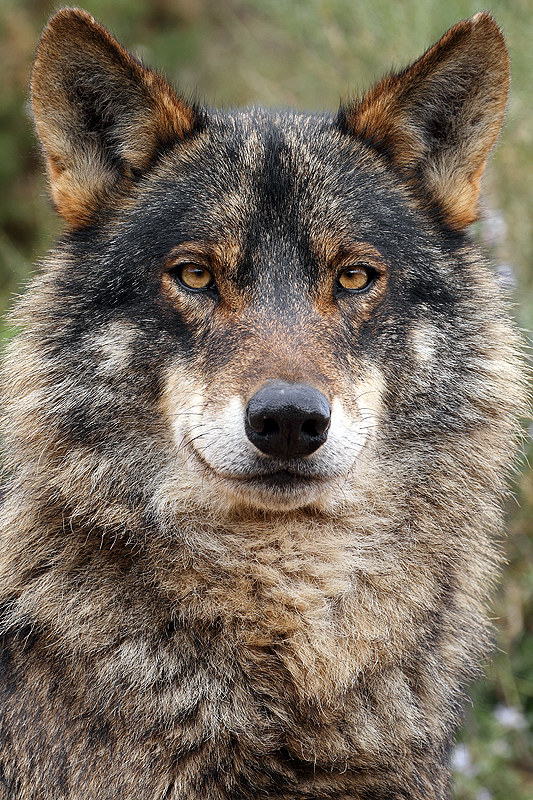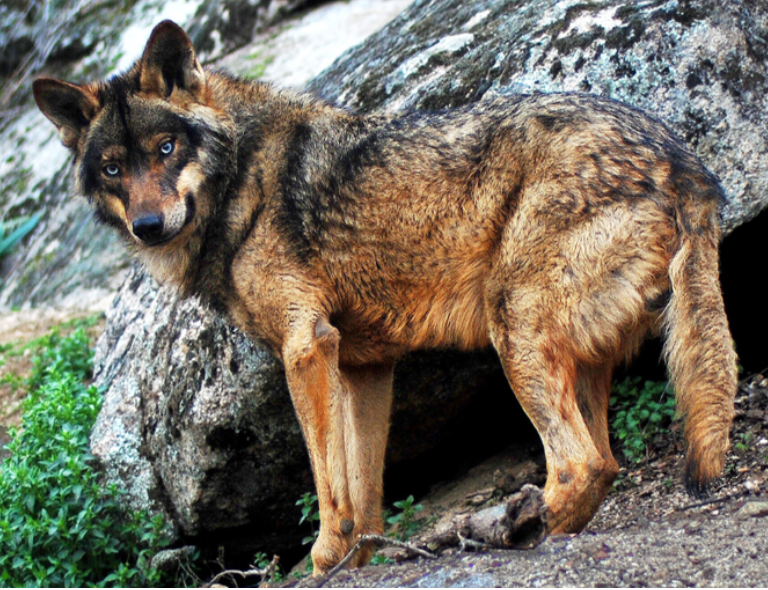Deep in the verdant forests and rugged mountain landscapes of the Iberian Peninsula, a legendary creature roams—shrouded in mystery and revered in tales of old. The Iberian wolf, a distinct subspecies of the gray wolf, is a symbol of the wild, untamed spirit of Spain's natural wilderness. These elegant predators have captured the imagination of people for centuries, and their story is one of resilience, adaptation, and ongoing conservation efforts.

The Iberian wolf (Canis lupus signatus) is native to the Iberian Peninsula, which includes Spain and Portugal. In Spain, these wolves are primarily found in the northern regions, including Asturias, Castilla y León, and Galicia. The mountain ranges of Cantabria also serve as a refuge for the wolf populations, providing them with the remote and rugged habitat they need to thrive.
Wolves are highly adaptable and can survive in a variety of habitats. The Iberian wolf prefers areas with dense vegetation, such as forests and thickets, which offer them cover for hunting and protection. They are also found in the mountainous terrain where they roam the highlands and valleys—a testament to their ability to navigate and dominate challenging landscapes.
At the top of the food chain, Iberian wolves are consummate predators, playing a crucial role in maintaining the ecological balance. Wild ungulates such as deer and wild boar make up the bulk of their diet, but they are opportunistic feeders and may also prey on smaller mammals, such as rabbits, and even domestic animals if wild prey is scarce. Wolves hunt in packs, utilizing complex social structures and strategies to take down animals much larger than themselves, showcasing their incredible intelligence and cooperation.
For those hoping to catch a glimpse of these enigmatic creatures, there are safe and responsible ways to observe them. Wildlife tours and guided wolf-watching excursions are gaining popularity in regions of Spain where wolves are known to roam. These outings offer a chance to see wolves in their natural setting without disturbing their habitat, all while learning from experts about their behavior and the conservation efforts that protect them.
Despite their prominence in the ecosystem, there is still much that remains unknown about the Iberian wolf. Their elusive nature makes them a difficult subject of study, and researchers are continuously uncovering new aspects of their behavior, diet, and interaction with the changing landscapes. One intriguing aspect of the Iberian wolf is their howl, a haunting sound that carries through the wilderness and has become the subject of scientific study to decode its various meanings and functions within the pack.

The Iberian wolf is not just a creature of ecological importance but also of cultural significance. It features prominently in Spanish folklore and mythology as a powerful and mystical being. Conservation efforts continue to be essential in preserving this iconic species, as they face threats from habitat loss, human-wildlife conflict, and illegal poaching. Educational programs and eco-tourism are critical tools in promoting the protection of the Iberian wolf, ensuring that it continues to be a symbol of the wild, untamed heritage of Spain.
The Iberian wolf's remarkable adaptation to its environment, complex social behavior, and mysterious allure make it an endlessly fascinating subject. As conservationists work to secure the future of these magnificent predators, our understanding and appreciation for the Iberian wolf continue to grow—deepening the connection between humans and the wild realms of Spain they call home. In the shadowed forests and the rugged peaks, the Iberian wolf's howl echoes, a reminder of the wilderness that still endures and the secrets it holds.